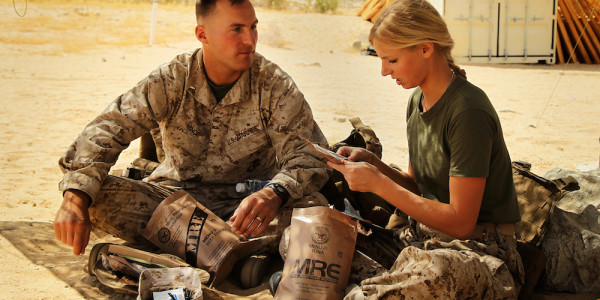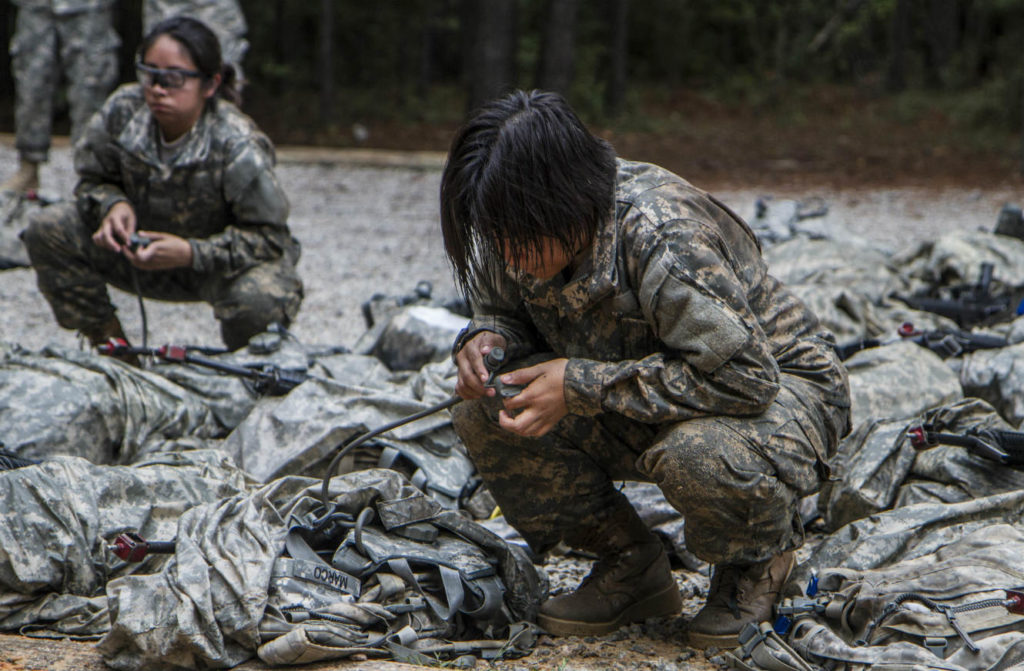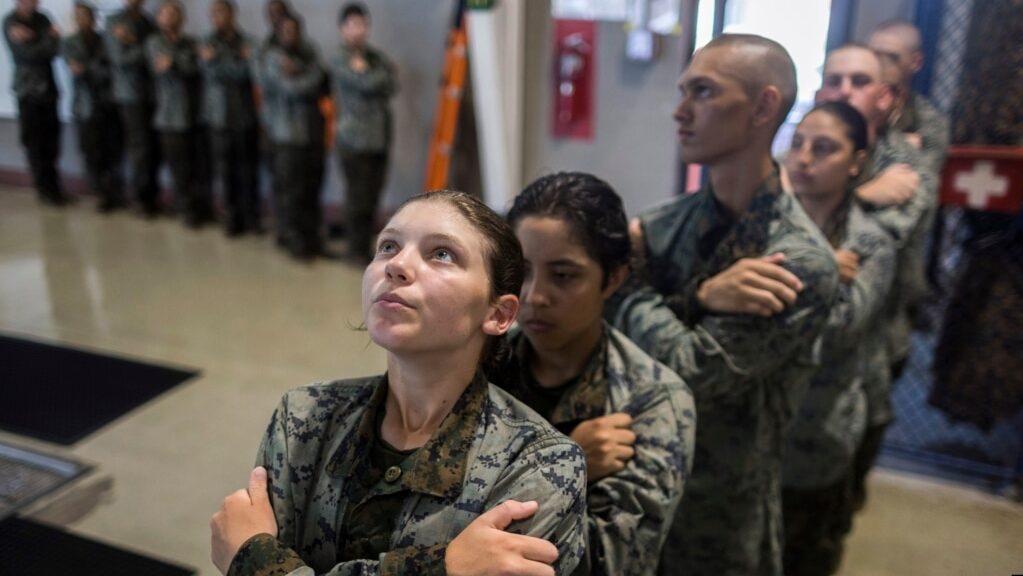Discover How female soldiers manage periods and bathroom needs in war zones: Practical hygiene tips, menstrual suppression options, field sanitation practices, and real experiences from women in combat, ensuring health and readiness even in the toughest environments. How do Female soldiers manage their Periods / Bathroom situations at War zones?
Introduction- How do Female soldiers manage their Periods / Bathroom situation at War?

Managing menstrual health in combat situations is a unique challenge for female soldiers due to the demanding and often austere environments they operate in. These challenges range from limited access to hygiene facilities to the need for uninterrupted focus on their missions. However, female soldiers have developed effective strategies and practices to address these concerns while maintaining their health and operational readiness.
Female soldiers Challenges of Menstrual Health in War Zones

Female soldiers face several obstacles when managing their menstrual health during deployments, including:
- Limited Privacy: Combat zones often lack gender-segregated facilities, requiring female soldiers to adapt to shared spaces or makeshift arrangements.
- Hygiene Concerns: Poor sanitation can lead to health issues such as urinary tract infections (UTIs), which are more common among women deployed in austere environments.
- Time Constraints: Operations often demand quick breaks, leaving little time for privacy or proper hygiene practices.
- Menstrual Management: Handling menstruation in the field adds another layer of complexity, especially when facilities are scarce.
- Limited Sanitation Facilities: Many combat zones lack clean and private spaces for menstrual hygiene, making it difficult to change sanitary products or wash hands regularly.
- Unpredictable Cycles: Stress, physical exertion, and extreme conditions can cause irregular or intensified menstrual cycles, complicating preparations.
- Supply Shortages: Access to tampons, pads, or other menstrual products may be sporadic during extended deployments.
- Time Constraints: Long missions or convoy rides can leave little opportunity for breaks to manage menstrual needs.
How do female soldiers manage with Male Soldiers? | Female and male soldiers working together
What are Strategies of Female soldiers for Managing Menstrual Health in the Border?

Female soldiers carry menstrual products such as tampons and pads. Some use menstrual cups for longer-lasting options with less waste. Education on managing menstruation in austere environments is increasingly emphasized during training. Female soldiers employ a combination of practical solutions and medical interventions to manage their periods effectively:
- Menstrual Management in Combat Zones: Managing menstruation in the field for female soldiers. Without proper facilities, women have had to improvise solutions such as using coffee cans or other containers in cramped spaces like tanks.
- Hormonal Birth Control: Hormonal methods such as oral contraceptives, intrauterine devices (IUDs), and Depo-Provera shots are widely used to suppress or regulate menstrual cycles during deployment. These options allow women to skip periods entirely or reduce their frequency, offering greater convenience in the field.
- IUDs: Devices like Mirena can significantly reduce bleeding or stop periods altogether.
- Depo-Provera Injections: These injections often suppress menstruation for up to six months.
Starting these methods well before deployment ensures that any side effects are managed beforehand.
Female soldiers health Risks and Preventive Measures
Combat environments pose risks such as infections and discomfort due to poor hygiene facilities. To mitigate these risks:
- Hydration: Staying hydrated is crucial to preventing urinary tract infections (UTIs), which are common among deployed women who may limit fluid intake to avoid bathroom breaks.
- Hygiene Protocols: Washing hands before and after changing sanitary products and using wipes or sanitizers reduces the risk of infections like yeast infections or pelvic inflammatory diseases.
- Medical Support: Regular consultations with healthcare providers before deployment help address concerns about menstrual suppression methods or irregular cycles caused by stress.
Female soldiers Cultural and Operational Challenges

Despite advancements in menstrual management strategies, cultural barriers persist. In some military organizations, period suppression methods are underutilized due to limited awareness or misconceptions about their purpose. Additionally, shared facilities with male colleagues can create discomfort for female soldiers when managing periods openly.
Efforts are underway to improve menstrual health management for female soldiers:
- Education: Providing comprehensive training on menstrual suppression options and hygiene practices ensures readiness before deployment.
- Policy Changes: Advocating for better access to hormonal methods and sanitary supplies can reduce logistical challenges.
- Innovative Solutions: Research into more durable and discreet hygiene products tailored for military use continues to evolve.
- Menstrual Cups: Menstrual cups are a popular choice among military women because they require less frequent changing (up to 12 hours) and produce minimal waste. They are particularly useful in environments where disposal of sanitary products is challenging.
- Sanitary Supplies: Soldiers carry ample supplies of tampons, pads, or menstrual cups tailored to their needs. A recommended 30-day stock ensures preparedness for unexpected changes in cycles or supply shortages. Additionally, disposable wipes and hand sanitizers are essential for maintaining hygiene in unsanitary conditions.
In combat zones, used sanitary products must be disposed of carefully to prevent attracting wildlife or compromising security. Common practices include burying or burning used items when proper trash disposal is unavailable.
How Female Soldiers Manage Bathroom Needs on the Frontline?

The life of a soldier is demanding, and for female soldiers serving on the frontline, managing basic needs such as bathroom use can be particularly challenging. With male colleagues often present and facilities limited, female soldiers have developed strategies to ensure privacy, hygiene, and efficiency while maintaining operational readiness. This blog explores the practical solutions and challenges faced by female soldiers in combat zones.
Innovative ways to manage their bathroom needs:
- Health Risks and Countermeasures: The lack of adequate bathroom facilities can lead to serious health risks for female soldiers:
- Urinary Tract Infections (UTIs): Rates of UTIs among deployed women range from 10% to 18%, significantly higher than civilian rates. These infections are often caused by poor sanitation or deliberate dehydration to avoid bathroom trips.
- Dehydration: Many female soldiers reduce water intake to minimize bathroom breaks, which increases the risk of heat injuries and decreases physical performance.
To mitigate these risks:
- Leaders encourage hydration and educate soldiers on its importance.
- The Army has begun issuing urinary devices and hygiene supplies as standard equipment.
- Cultural Barriers: Gender dynamics also play a role in how bathroom needs are managed on the frontline. Male colleagues sometimes resist unisex bathrooms due to concerns about privacy and hygiene. However, studies show that many female soldiers are comfortable with shared facilities as long as basic privacy measures are implemented.
- Looking Ahead: The military continues to explore ways to improve conditions for female soldiers in combat zones. Recommendations include:
- Issuing urinary devices universally.
- Providing education on their use during basic training.
- Updating field hygiene protocols to better accommodate women’s needs.
- These measures aim not only to enhance comfort but also to ensure that female soldiers remain healthy and effective teammates.
While bathroom needs may seem like a minor concern compared to the broader challenges of combat, they play a crucial role in maintaining the physical health and mental well-being of female soldiers. By addressing these issues through innovative tools, strategic planning, and inclusive policies, the military is taking steps toward ensuring that all service members—male or female—can perform their duties without unnecessary hardship.
Use of Female Urinary Diversion Devices (FUDDs) at Border

One of the most effective tools for female soldiers is the Female Urinary Diversion Device (FUDD). These funnel-like devices allow women to urinate while standing, minimizing disrobing and reducing exposure in shared spaces. While these devices are practical, many soldiers lack training on their proper use, which can limit their effectiveness.
Portable Toilets and Latrines:
In many combat zones, portable toilets or latrines are set up to provide basic facilities. Efforts are made to designate separate areas for privacy when possible. However, these facilities can be far from living quarters and may not always be clean or secure.
Hygiene Practices:
To maintain cleanliness in the absence of running water, female soldiers rely on hygiene wipes and hand sanitizers. These items are essential for preventing infections and ensuring comfort during long operations.
Strategic Planning:
Female soldiers often plan bathroom breaks strategically during missions. Leaders are encouraged to provide sufficient time for breaks to prevent dehydration or health complications caused by holding urine for extended periods.
Uniform Modifications:
Adjustments in uniforms have been proposed to make bathroom use easier for women. For example, reconfiguring load carriage equipment can reduce the time required for disrobing during latrine stops.
Conclusion – How do Female soldiers manage their Periods / Bathroom situation at War?
Managing menstrual health in combat situations requires resilience, preparation, and adaptability. Female soldiers have demonstrated remarkable ingenuity in addressing these challenges through hormonal suppression methods, practical hygiene practices, and strategic planning. While progress has been made, further efforts to normalize discussions around menstruation in the military and improve access to resources will empower women on the frontline to perform at their best without compromising their health.

